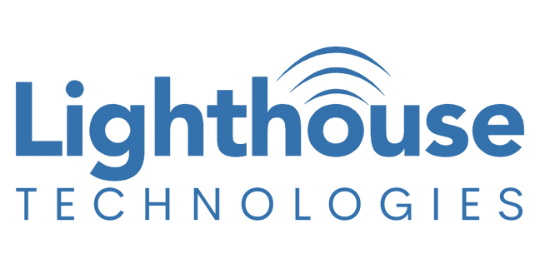Hiring the right person for the right role is a great way to grow the team and their capabilities, but the process many times falls apart and results in additional expense, wasted time, and poor team results.
So, what considerations would we recommend you make when hiring for a software QA role? Let’s dive right into it!
What Software QA is and isn’t
Let’s first begin with a quick discussion on what software quality assurance is and what it is not. For some organizations, the definition of software QA differs, and the type of person that each organization recruits for these roles differs. This can lead to a disconnect between the candidate’s expectations and their roles and responsibilities once hired. Equally, it may result in a large disconnect between the candidate’s short-term and long-term career goals and the organization’s ability to meet those career goals with a well-defined promotion path. So, when these communication gaps come together it results in the wrong person in the wrong role.
Software quality assurance is not a junior developer role. Let me just reiterate that one more time. People who are software quality assurance team members are not Junior Developers. Their career goals aren’t to, at one point, become a developer, and then a senior developer, followed by manager or architect. That’s not the path that lies before many in a quality assurance world. Does it happen? Yeah! Absolutely it happens, but that doesn’t mean that everyone in quality assurance is striving to become a developer one day.
Software quality assurance professionals are experts in understanding how to understand requirements or user stories and build a set of test cases that ensure the application meets the requirements. But, more importantly is their ability to ensure the system doesn’t do what it’s not supposed to do.
At Lighthouse, when we are evaluating candidates, we want to see that someone is passionate about testing software. For Jr. testers, we look for staff that are detail oriented (Pro Tip – If they have even a single typo on their resume or they randomly use different fonts (like they copy and pasted it together), we reject them because clearly they are not detail oriented). If they are detail oriented and passionate about software testing, we can teach them our True North Testing Methodology™.
For Mid-Sr. testers, we look for experience on their resumes, and clear signs of good written communication skills. We have a very stringent “Gauntlet” of technical tests that they must complete before we will even interview them. During the interview, we ask scenario-based questions that show us whether they understand how to peer review/groom user stories and whether they can develop both positive and negative test cases.
Once they arrive at Lighthouse, we spend the first several days training and evaluating them on our True North Testing Methodology™. This way we’re able to provide our clients with a professional testing team who are dedicated to mastering software testing and Quality Assurance principles.
What to look for in a CV/Resume
So, when you’re searching for a software quality assurance professional there are a few things that stand out as exemplary for a resume.
- Number of years and a software QA position. You want to ensure you’re hiring someone with an appropriate amount of experience for the seniority level of the position you’re hiring. Equally so, you want to ensure that the roles in which they filled are equal in responsibilities and complexity, or that they increase over time.
- Professional development and certifications. Look for the candidate taking additional education throughout their career. It shows they’re always hungry for more and looking to learn and develop. These are key traits in any top-performing team member, and the best place to look for these traits is in the education section of their resume or listed within their professional certifications. At Lighthouse, we look for candidates that are ISTQB certified.
- Strong layout and organization. A great candidate recognizes that this resume is their first impression to a total stranger. How did they present themselves? Look for candidates who show strong quality in something as minor as a resume.
- Avoid long resumes. If their resume is seven pages long, they clearly do not have the skills to communicate well. Remember that you should be hiring for aptitude and attitude first, then look for the specific skills.
Cultural and personality fit
Every team has its own culture and, when you’re hiring for culture there are a few things to keep in mind besides ensuring the right personalities are hired. To get you started here are some helpful tips
-
- Be sure you have your culture well understood and written down. Be sure it’s real not a bunch of “fancy words that nobody really believes.” Ask your candidates what kind of culture they are looking for and then evaluate how well they might fit.
- During the interview give the candidate a handful of opportunities to openly talk about themselves. For these questions there is no right or wrong answer, however, what you’re looking for is their ability to communicate effectively. Does their answer tell a story? Does their answer have a beginning, middle, and end that is well defined and has flow? This is important when hiring a quality assurance professional because the role requires effective communication, especially when that person is trying to relay an issue to another team member or present their ideas to the rest of the team.
- Also, during the interview give the candidate an opportunity to persuade you and change your mind on a topic. This will test their ability to persuade others, an incredibly important skill to have within quality assurance. Many times, QA professionals have to go up against business analysts, developers, or project managers to ensure a feature is released bug-free, and those other team members might not think there’s an issue at all. So, if your team member is capable of persuasion without conflict, you’ll be bringing on someone who can keep the peace as well as the quality.
The first few weeks
The first few weeks are critical to success when bringing on a new candidate. Having the processes in place to successfully onboard someone is important to ensuring their longevity within the team, and their ability to contribute in the short-term so they reach the break-even point as quickly as possible.
If you don’t already have an onboarding process in place, the best place to start is by reaching out to your managers and gathering a list of all the things a new candidate would have to accomplish in their first three weeks in order to be effective on the team. This will clearly include training on your testing methodology and QA principles. From there you can ask each manager how long each task would take, and then based on a 40-hour workweek prioritize the tasks in order of precedence so that your new-hire now has an onboarding roadmap and an expectation for what they need to do to be successful.
The goal of any new candidate is to fit in as quickly as possible, so by having a plan in place ahead of time, you and the new-hire are set up for success. And, be sure to check in with them frequently to get to know them personally and see how well they are adapting to your team and their position.
We say all that to say this
It is very difficult to hire the right person for the right role, and it’s even more difficult to groom them over the years to become an even better expert within their specific field. On top of that, the training, HR, and career performance goals that go along with staying up to date in such a niche field are often insurmountable for many organizations.
When this becomes the case, but you know you need an expert who’s dedicated their entire career to producing high-quality software, then we really should have a discussion. We can take all the heartache out of hiring the right person, grooming them across their career, training them, and providing incentives along the way.
From your perspective, it’s as easy as agreeing to an engagement and then gaining immediate access to our True North Testing Methodology™ and all of that hard work we’ve put in over the years. With Lighthouse as a partner, all of that knowledge and wisdom will be easily applied to your team.
So, if this interests you, reach out to us to book a discovery call so that we can better understand your needs, and you can get to know us a little bit better.






